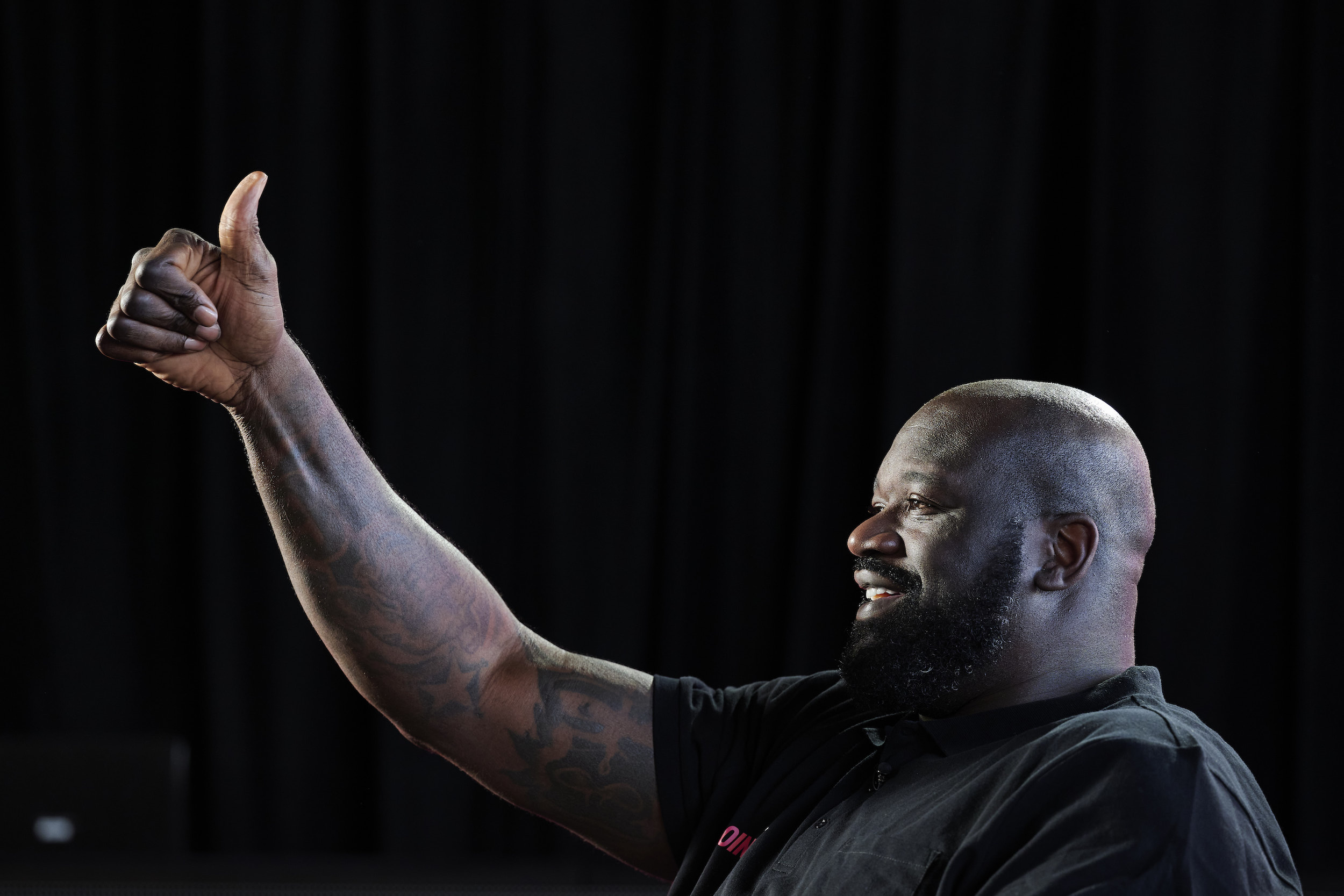I was led to believe this saga had ended. The bizarre, months-long tragicomic quest to physically place class-action lawsuit documents into the hands of the elusive Shaquille O'Neal, who is a defendant in a complaint centered on the bad business practices of kerploded cryptocurrency exchange FTX, was supposedly completed last month. My friends, this has not ended. According to a motion to dismiss filed on O'Neal's behalf on Monday, the legal documents were not properly served, and O'Neal never took possession of them, and indeed to this day they may still be lying on the street out in front of his home. The saga continues.
On April 16, plaintiffs' attorneys announced that their poor exhausted process servers had finally cornered O'Neal outside of his Atlanta residence, and—on camera no less—had transmitted into his possession documents which would finally formally engage O'Neal in a lawsuit filed way back in November. The lawsuit, filed against FTX founder Sam Bankman-Fried and an eye-popping roster of celebrity endorsers, says that FTX investors and customers were lured to "the Deceptive FTX Platform" by the "false representations and deceptive conduct" of the defendants. O'Neal, who famously will happily endorse just about any product on Earth, recorded a video as an FTX brand ambassador, which FTX launched on its Twitter account in June 2022. Five months later, after a CoinDesk investigation showed that nearly $6 billion of FTX's "assets" were in the form of its own made-up and essentially worthless crypto-token, FTX went kerplooey, Bankman-Fried hightailed it to the Bahamas, and hoodwinked crypto-schmos came calling for recompense.
While the other celebrity FTX ambassadors—a group that included Tom Brady, Gisele Bündchen, Shohei Ohtani, Stephen Curry, and Naomi Osaka—made themselves available to process servers, O'Neal evidently decided to run out the clock. On April 7, the plaintiffs filed an unusual motion, describing the difficulty they'd had tracking O'Neal across multiple states and being turned away, ignored, or even threatened at his various residences, and asking the court to allow them to serve process via the direct messages of Twitter or Instagram. The judge considered that motion "factually unsupported" and "frivolous" and smacked it down, and required process servers to continue to attempt to physically deliver the legal documents into O'Neal's possession. The following Sunday, plaintiffs' attorneys told The Block that they'd finally found O'Neal in Atlanta, and that process servers had met the legal standard for delivering documents into his possession, in a direct interaction outside of O'Neal's home and captured by O'Neal's own security cameras.
But that is not how O'Neal now says it went down. According to Monday's filing (embedded below), O'Neal was in an automobile and pulling out of his driveway on April 17 when his way was blocked by "strangers lurking outside his home," who failed to identify themselves or their purposes. As O'Neal accelerated "at a high rate of speed" around the desperate process servers, one of the two of them "tossed the legal documents at the front of" O'Neal's car. The documents bounced off the car and onto the public road, where they were retrieved by neither the servers nor O'Neal, who of course sped away from the scene. Presumably they are still out there, warped by rainwater and bleaching in the hot Georgia sun. Perhaps shreds of these documents are now helping to form a nest for songbirds.
O'Neal's attorneys say the plaintiffs' process servers—who they argue are not in fact authorized to operate in Georgia—did not follow proper procedure when they chucked legal documents at a speeding luxury vehicle while diving frantically out of its path. It is their belief that O'Neal cannot be credibly accused of evading service, "by failing to be at the residences where Plaintiffs belatedly attempted service or by driving past strangers who approached his car," he just happens to be a hard guy to find. They've asked the court to quash this so-called service, and to dismiss the claims against O'Neal, citing the 90-day window plaintiffs are normally given to serve process to defendants. If the motion is successful, plaintiffs will have to decide whether it is worth it to refile against O'Neal and once again pit their threadbare process servers against this criminal mastermind.






